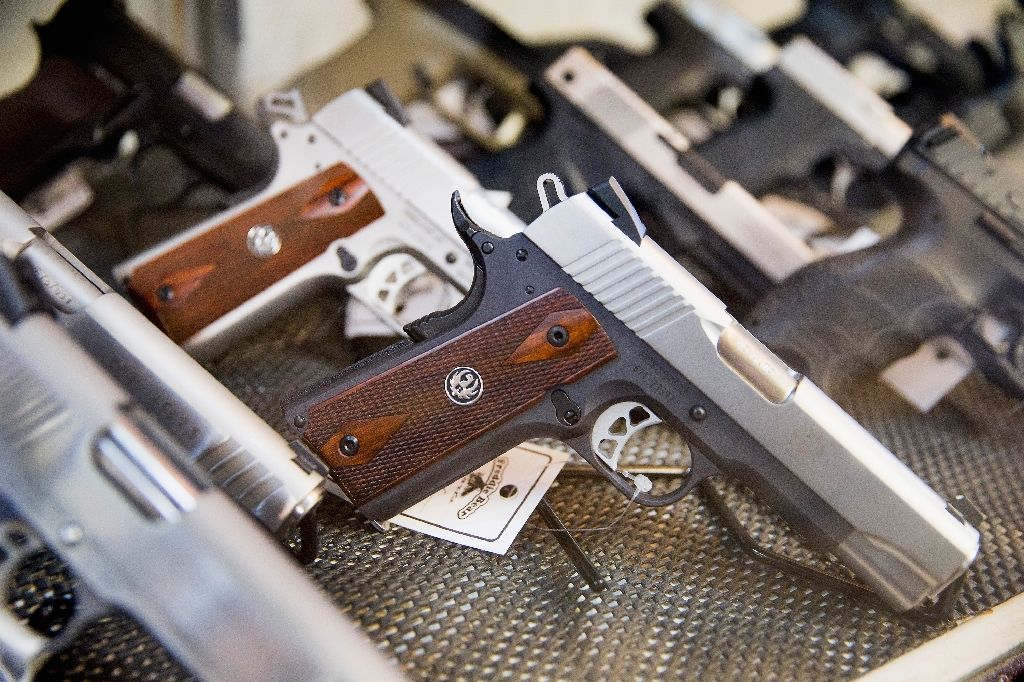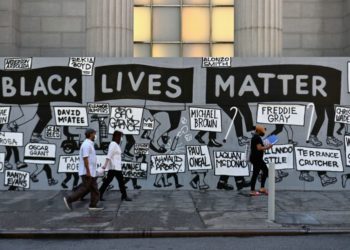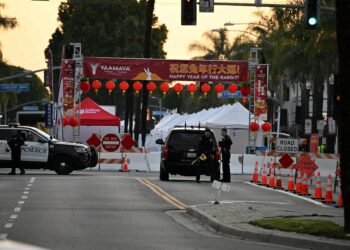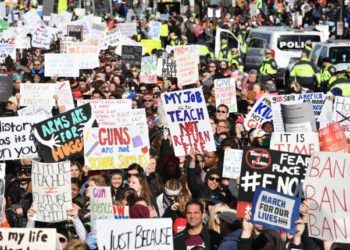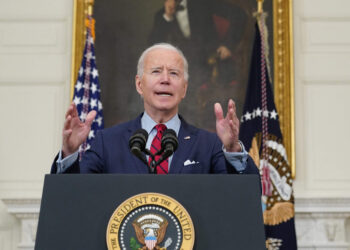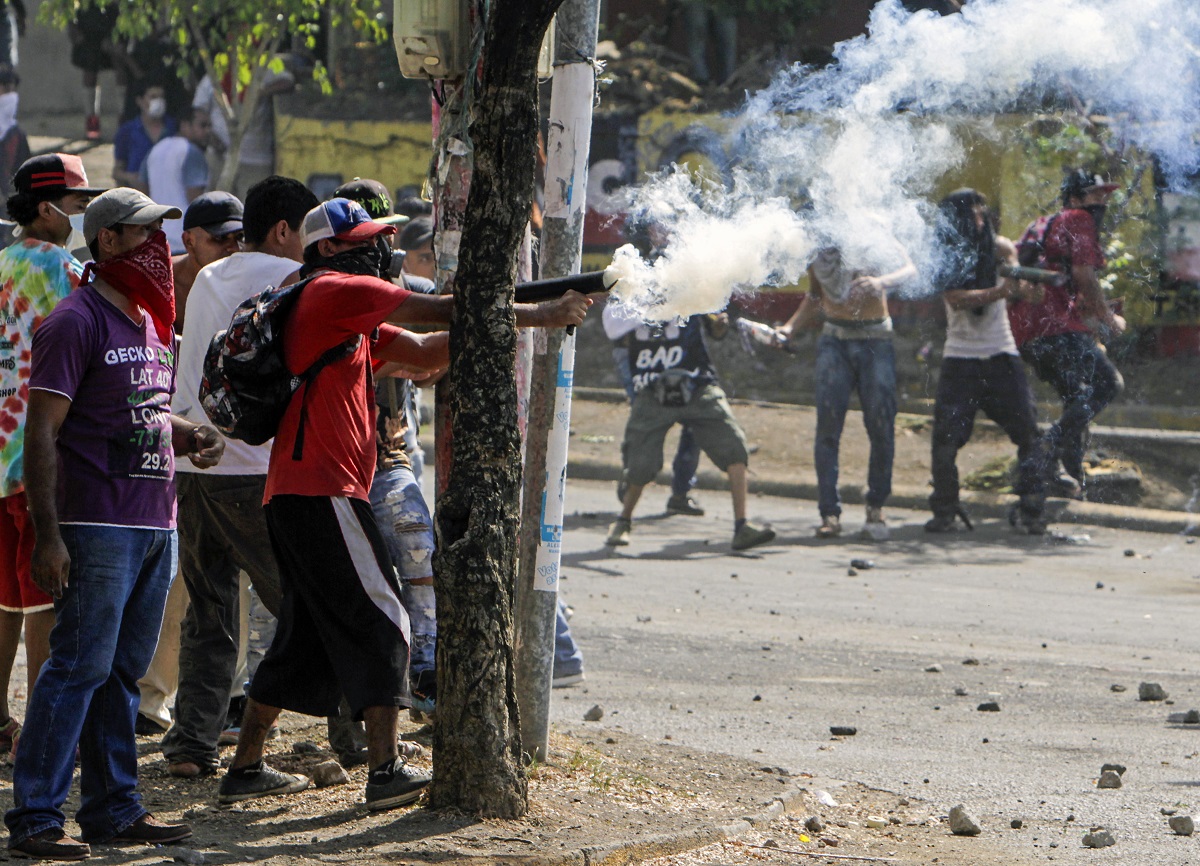There are no gun shops in Chicago, but the city is inundated with firearms.
Police have seized more than 5,600 illegally-possessed guns in Chicago this year alone, including 60 the weekend of August 3-5, when 66 people were shot and 12 killed between Friday evening and Sunday morning.
“Getting a gun in the city is like buying a pack of cigarettes at a gas station,” Wesley Pickett, a resident convicted of selling guns illegally, said in a 2017 letter from prison sent to ProPublica.
Chicago does not have the highest per capita murder rate in the country, but the city has nonetheless become a focal point in a national conversation about urban gun violence.
“Afghanistan is not like what’s happening in Chicago. People are being shot left and right … Chicago is like a war zone,” President Donald Trump said in a 2017 interview.
While high rates of gun violence are not unique to the Windy City, the death toll is striking. More than 1,700 people have been murdered, and thousands more have been shot in Chicago since the beginning of 2016.
So, where do the guns that fuel this violence come from, and what is being done to stem the flow of these weapons into the city?
Out-of-State Imports
About six in ten “crime guns” seized by Chicago Police originated from gun shops outside of Illinois, according to a 2017 report issued by the department. Crime guns are defined by law enforcement as those that are “illegally possessed, used, or suspected to be used in furtherance of a crime.”
In about 95 percent of cases, the person found in possession of a crime gun is not the original purchaser of the weapon, the report said.
The Law Center to Prevent Gun Violence ranks Illinois’ gun laws as the eighth toughest in the country. The state requires citizens to have a permit to buy firearms and to report stolen or lost guns. Residents who want to sell their guns privately are also required to solicit a background check from state officials and to submit documentation of the sale.
No such laws exist in neighboring states such as Indiana, making them a target for traffickers seeking to sell weapons on the black market in Chicago.
About 21 percent of guns confiscated by police in Chicago are traced back to gun shops across the border in Indiana, a short drive from the city.
After conducting gun offender surveys and crime analysis, the CPD concluded that “states with lax gun laws like Indiana and Mississippi are a primary target for gang members and their gun trafficker source buyers.”
The CPD’s report identifies a number of specific gun shops in Indiana and the suburbs of Illinois that supply the largest number of guns that end up being seized by police.
A co-owner of one such shop — Midwest Sporting Goods in Lyons, Il. — told The Globe Post there’s little the shop can do to prevent straw purchases.
“Unfortunately, you can’t be a mind reader,” he said. “There’s not a whole lot you can do.”
Robberies of gun shops also play a small role in supplying the guns on Chicago’s black market. According to a report from the Bureau of Alcohol, Tobacco and Firearms, 280 guns were stolen from licensed dealers in Illinois in 2016, and 197 were stolen in Indiana. But even if all 477 of these guns ended up on the streets of Chicago, they would only account for a small fraction of over 6,000 guns seized by police that year.
Legal Challenges
Identifying and prosecuting Chicago’s gun traffickers has proved to be a challenging task for officials.
Between 2007 and 2017, about 90 percent of weapons-related arrests made by Chicago police have been for illegal gun possession. Only 142 arrests were made for illegal sales — none for trafficking, or the illegal transfer of at least three guns.
Because the city’s crime guns often change hands many times before they’re recovered, the CPD says it’s difficult to establish a full ownership history, particularly when the gun originates from a state with no requirement to document private sales.
“In order for the investigation to proceed from the initial buyer … multiple cooperative witnesses and a great deal of luck are likely required to determine at what point an illegal transfer took place,” the report states.
With over 7,000 crime guns seized by CPD in 2017, establishing a chain of custody for each gun without a national database for secondary sales is a daunting proposition.
The lack of centralization amongst gun traffickers is also a challenge for law enforcement. In over 90 percent of cases examined by the CPD, seized guns were traced back to an original buyer with no other crime gun originally purchased in their name.
Solutions
Further complicating police investigations is the lack of federal oversight on gun trafficking issues. Illinois officials can only prosecute state residents for gun trafficking, and federal resources to combat illegal inter-state sales are slim.
Congresswoman Robin Kelly (D-Il.), who represents many of Chicago’s districts with the highest rates of gun violence, is backing a law that would make gun trafficking a federal crime and allow national law enforcement agencies, such as the Bureau of Alcohol, Tobacco and Firearms, to play a greater role in investigating these crimes.
“Our common sense gun safety laws have been rendered ineffective thanks to dangerous, counterproductive laws in Indiana, Wisconsin and elsewhere. These lax laws make it easy for criminals to traffic weapons, for dangerous individuals to get firearms,” Kelly, who serves as vice chair of House Gun Violence Prevention Task Force, told The Globe Post.
Kelly is a vocal proponent of the Federal Gun Trafficking Act that was proposed in 2017. Though it has 82 co-sponsors, including three Republicans, the bill has not yet advanced out of committee.
“I’m frustrated, angry and sad with all this violence. We have to move, even if it’s a small step; it’s a step forward. It can be background checks, national anti-trafficking legislation, workforce training, but it needs to be something,” the congresswoman said.
Richard Pearson, executive director of the Illinois State Rifle Association, told The Globe Post that he agrees that straw purchases and illegal sales are a major problem.
“It’s a travesty for all those kids in the city … I don’t want [gun traffickers] out there, they make my life tough,” Pearson said. “I don’t care if they throw them in jail for 10,000 years. It’d make me very happy.”
While Pearson and Kelly agree that law enforcement officials need to do more to prevent guns from illegally flowing into the city, Pearson expressed skepticism about Kelly’s motives and legislation proposed by Democrats.
“There is no common ground, we’ve given enough. I’ve had it with [Kelly],” Pearson said. “I know what the hooks are in these bills. I’m a lobbyist … these go after law-abiding gun owners, they don’t go after [traffickers].”
Kelly said that while groups like the National Rifle Association and the ISRA “talk a good game” about preventing gun violence, they often oppose legislation she believes could have a real impact in curtailing the problem.
“I’ve had enough of children dying in our streets and mothers grieving their loss,” she said.
Pearson claimed that gangs have infiltrated the city government, an allegation he said partially explains the lack of illegal gun sale prosecutions in Chicago.
“I think we have gang members who are in the Chicago Police Department,” Pearson claimed, adding he believes that gangs contribute money to city officials.
The Chicago Police did not respond to a request for comment regarding this claim.
Pearson argued that political correctness also plays a role in preventing gun prosecutions.
“It’s a political issue … we don’t want to prosecute black and brown people, who are doing most of this,” he said.
Kelly characterized such claims as “ridiculous dog whistle.”
Problematic Prosecutions
In the few cases where ATF has prosecuted people in Chicago for illegal gun sales, experts such as Kathrine Tinto, a professor at the University of California Irvine School of Law, have raised concerns about the agency’s investigative methods.
Tinto studied ATF’s investigative tactics in cases involving undercover officers, informants and sting operations.
One such case in Chicago explored in detail by ProPublica Illinois and the Chicago Sun Times, involved John Thomas, a resident in his 30s who resorted to setting up illegal gun sales to help provide for his daughter.
Working through an informant, the ATF enticed Thomas to set up small gun deals by offering to buy weapons for a high price. All of the guns Thomas brokered deals for were actually purchased by the ATF.
Tinto said cases like Thomas’ raise the question of whether or not the ATF is actually eliminating gun dealers, or simply creating them.
“You’re not necessarily getting only people who are involved in guns and gun trafficking. The net is much wider,” she told The Globe Post. “The strategy that they chose, as you see in Chicago, comes with it a lot of troubling implications about who they’re catching.”


